Most parents would agree that motherhood has always had its ups and downs.
But parenting in a pandemic? That presents an entirely new set of challenges.
Around the world, as Covid-19 infection rates rise and schools shut down, mothers are contending with an array of circumstances. Some are managing home-schooling, while simultaneously holding down jobs; others are dealing with mental health issues (either their children’s or theirs).
We spoke to seven women in different countries about motherhood in a pandemic.
“My children have both regressed”
Kerry Potter is a journalist who lives in the UK with her husband and two children, who are nine and 13
I’m writing this at 5.30am, otherwise it won’t happen. My work, once 9-5, is now crammed into the crevices: pre-dawn, while the pasta is cooking, Saturday night when I really, really should be doing something more fun.
Except there’s no fun to be had here. We’ve been in lockdown on and off for almost a year. We have the world’s worst Covid-19 death rate per capita and everyone knows someone who has died. We’re currently not allowed out of the house, unless for essential reasons.
My children have not attended school for nine months out of the last year. They have both regressed: the youngest speaks in a baby-voice, the oldest won’t step outside without a parent by her side.
My husband and I are supposed to home-school them, while holding down our day jobs and keeping on top of the endless meal prep and housework. Spoiler alert: it’s impossible.
I’m uneasy about moaning publicly about this. I’ll be slapped down, as is the way here now, with everyone, whatever their situation, at the end of their tether. “At least you’ve still got a job.” “At least you don’t work in an ICU unit.” “At least you’re not dead” (my own mother said this to me last week). All true, I suppose. But it doesn’t stop the black, seething resentment. The pandemic is bringing out the worst in me, and I find myself jealous of my friends who’ve got their children into school because they qualify as a key worker under the government’s newly relaxed definition. This has got to end soon – hasn’t it?”
“My family had Covid-19 last month”
Hirome Moura, 42, is a marketing manager who lives in Sao Paulo, Brazil, with her husband and two children, who are 15 and 12
“We fell ill with Covid-19 last month. The symptoms started on January 6, and my children and I were only moderately unwell, but my husband has diabetes and contracted pneumonia. He had to spend a night in hospital. It was scary.
Schools have only just reopened in Brazil. The children go one week and then study from home the alternate week to keep school capacity at 35 per cent and reduce the spread of Covid-19.
It’s so much better than last year, when the schools were shut. My daughter was ok – she studied a lot, but she missed her friends. But my son has ADHD and can’t pay attention with the teacher contact. So, on the weekends, my husband and I would do extra study with him. He missed his girlfriend, too.
Working from home, while the children were home-schooling and while doing all the washing, cooking, cleaning tested my patience.
I don’t feel safe in Brazil. I don’t trust our President Jair Bolsonaro [who has described Covid-19 as a “little flu”]. I look for my own information on the internet. So many Brazilians feel let down by the way Covid-19 has been handled here.”
“My biggest stress was supporting my family”
Ginnie Benzie, 29, is a single mum and lives with her daughter, six, and grandfather, 89, in Alotau in Papua New Guinea
“There are COVID-19 restrictions here, but they aren’t enforced. No one wears a mask. There have only been 900 reported cases of Covid-19 in PNG, but I don’t know if that’s accurate because we can’t get tested. As far as I’m aware, we don’t have any test kits in our town at all.
To be honest, we’re not really concerned about COVID-19 because we have so many other viruses like Tuberculosis, HIV and malaria. COVID-19 is just another thing we have to deal with. We did go into lockdown last year [with an 8pm curfew, a ban on public transport and alcohol], and spent months cooped up in our house.
Our lockdown ended because our economy wasn’t strong enough to cope, so we’ve had to learn to live with it. Now everything is open, including schools.
My biggest stress is money. When I lost my job at the start of the pandemic, I had no idea how I was going to pay our bills, provide for my daughter and put food on the table. Luckily, I have two sisters nearby and a big garden for growing food, and I’ve started working a new job.”
“Schools have shut. Again”
Helen Russell is a writer author and speaker who lives in Denmark with her husband and six year old, and three-year-old twins
“It’s minus 17 degrees C and we’ve been in lockdown (again) since Christmas. There is no punch line.
Early on in the pandemic, Denmark seemed to be ‘winning’ at Covid-19, locking down in March 2020, before there had been any deaths from the virus and only around 500 confirmed cases.
‘Home-schooling’ was a challenge, but it was also a novelty. We somehow got through the days – my husband and I, tag teaming – before working again in the evenings.
The government pledged to support 90 per cent of wages of hourly workers who were sent home; salaried workers got 75 per cent covered; and freelancers – like me – who lost out on income compared to the previous year could get up to 80 per cent of their earnings compensated (my income halved, with no speaking opportunities and publications struggling).
Schools reopened gradually by May, with kids spending most of their time outside – even for lessons – and life felt almost normal. My children certainly took it in their stride (‘You can’t share my ice cream! You’ll catch CORONA!’).
It wasn’t until September that the government asked Danes to wear face masks and imposed a 10pm closing time on bars and restaurants.
Now, the whole country is in lockdown with only grocery stores open and a ban on gatherings of more than five people.
Thankfully, primary schools are permitted to reopen this week – to stop the entire economy going down the toilet (I paraphrase, but this was basically the government memo) — so now I’m playing catch up, still working every night to cover the backlog. I miss friends. I miss family. I even miss strangers. But everyone over the age of 16 in Denmark is due to be vaccinated by July – and I can’t wait. As soon as this blizzard stops, I’ll be rolling up my sleeve in anticipation.”
“The hardest part of being a parent is not knowing what the pandemic will bring”
Jennifer Silim Villarta, 29, is a single mother who lives in Cebu in the Philippines with her three-year-old son
“The situation in the Philippines is becoming more alarming because of the new variants of the coronavirus. People are worried and paranoid. We are being advised to stay home as much as possible, and if we do go out, we have to carry a quarantine pass.
I’m a teacher and schools here aren’t open for face-to-face classes – everything is done via distance learning. The teachers provide self-learning modules to students and pick them up for marking two weeks later. It’s difficult because we cannot make sure that our students are really learning and doing the modules on their own. Most of them don’t have any gadgets or technology to reach us for help or with questions.
Part of me is glad my son is so young he doesn’t understand what’s going on in the world right now. The hardest part of being a parent during all of this is not knowing what the pandemic will bring tomorrow – especially for my son. There is so much uncertainty.”
“My autistic son has had a rough time”
Kristen Teodoro, 31, lives in The Hamptons, US, with her husband and two children, five and two. Her five year old, Hudson, is non-verbal and autistic.
“When schools were shut down in March, my son went from six hours of school a day, five days a week, to maybe five hours altogether. And they were hard.
He can’t look at the screen or follow his therapist’s prompts, so they were really just telling me what to do. I became the teacher, which was of course something that I stepped up to the plate for, but I don’t have the years of experience that his teachers have.
Schools are open now, but the new regulations mean there are no sensory tables, no areas where he can take a break and desensitise himself because he gets very sensory stimulated. So, he’s learning at home right now.
He’s had a rough go. He won’t wear a mask, so we have a hard time deciding whether to leave or go to the park because we don’t want to have to deal with someone saying, ‘Why doesn’t you child have a mask?’
But there have been some positive developments. Over the summer, we started a non-profit for autistic children and put together an outdoor programme to give them some structure back. We had music therapy and sensory crafts and books. So many people volunteered space and supplies.
The pandemic has taught me to take matters into our own hands. I think that in America we tend to think they ‘they’ – the government or the school district – will take care of things. But I’m learning that, often, we have to figure it out on our own. If schools shut down, that’s not going to be ok for me. My son needs in-person learning. The pandemic has made me find my voice a little.”
“The hardest thing is setting boundaries”
Katherine Wilson, 46, lives in Rome with her husband and two children
“Right now in Italy, the numbers have plateaued. Schools and stores are open, while bars and restaurants are open for lunch but not for dinner. Masks are still obligatory everywhere, but restrictions change from one week to the next.
The hardest thing about being a parent during the pandemic is setting boundaries. At the beginning of the pandemic, we were a lot more lax with screens – because we thought it would be a few weeks. But now limits are essential. It feels like the kids have so many limits on their life due to COVID-19, and it would be easier to say, “no bedtime, no screen limits”. But, as we all know, that’s not in their best interest.
It’s been a year. A lot of parents of teenagers have thrown in the towel, and I get it. My kids miss socialising with their friends in the evenings. They’re at the age when they should be exploring, experimenting, having their first romantic relationships… and they can’t do any of that. There’s been regression, for all of us.”
Photo courtesy of Lisa Sorgini, an Australian photographer who captured portraits of mothers and children during lockdown as part of her celebrated series, ‘Behind Glass’.
Want more stories like this? Sign up to PRIMER’s weekly newsletter here.




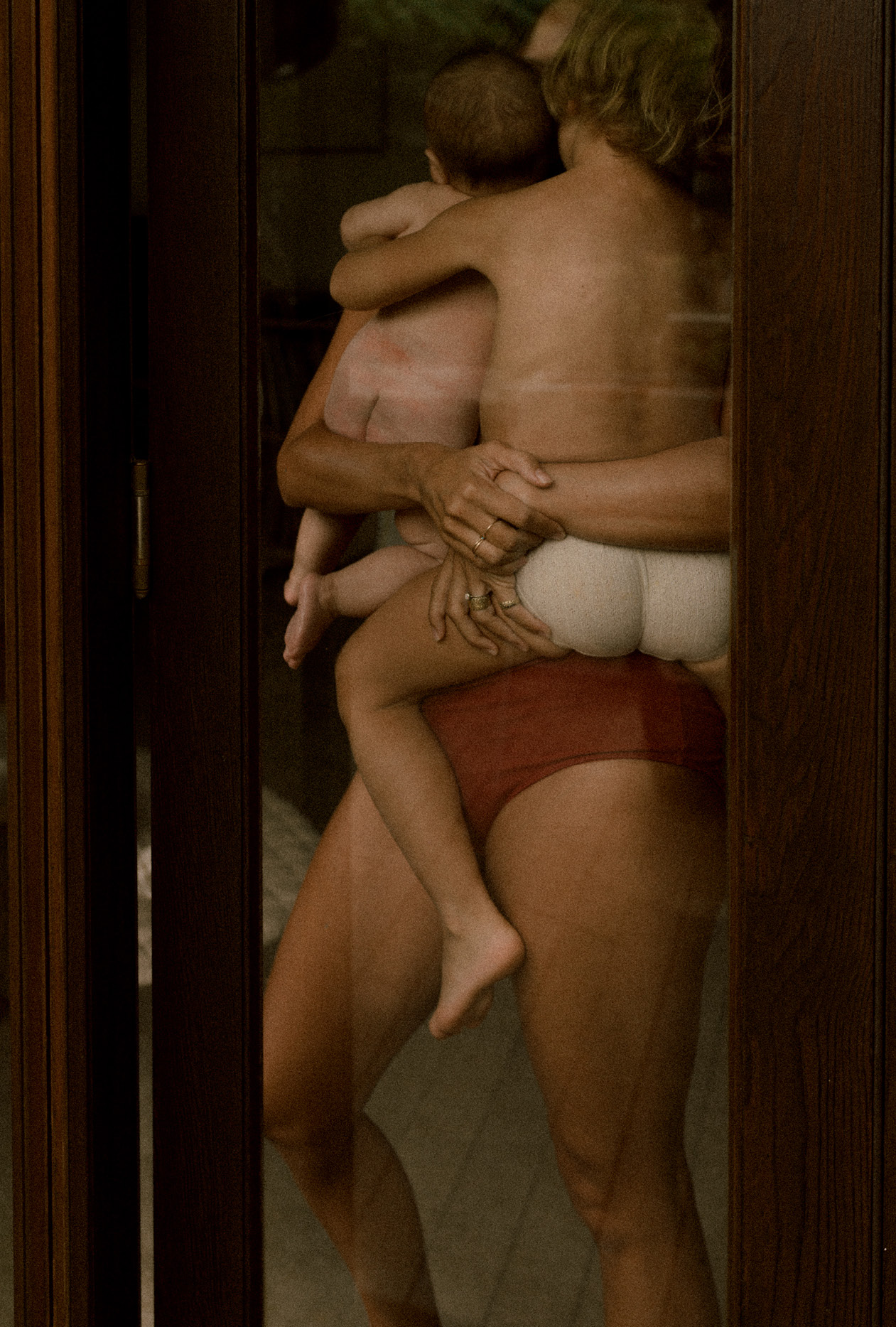


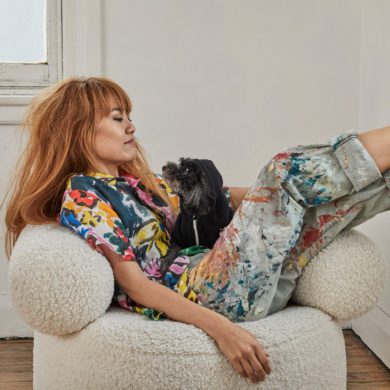
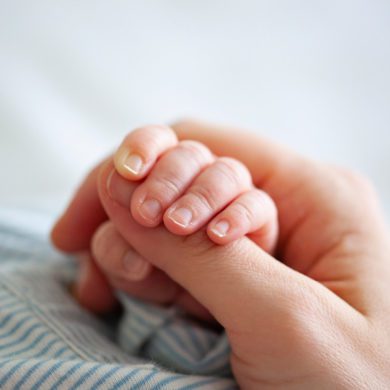
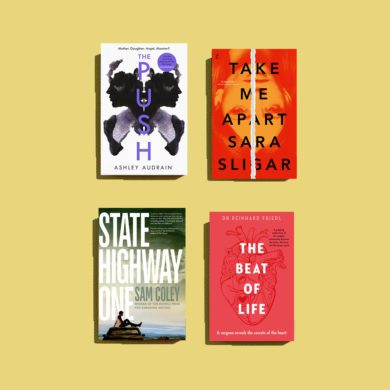
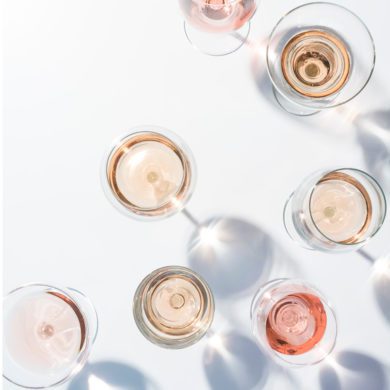
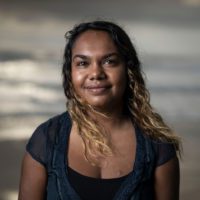
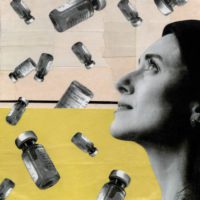
No Comments